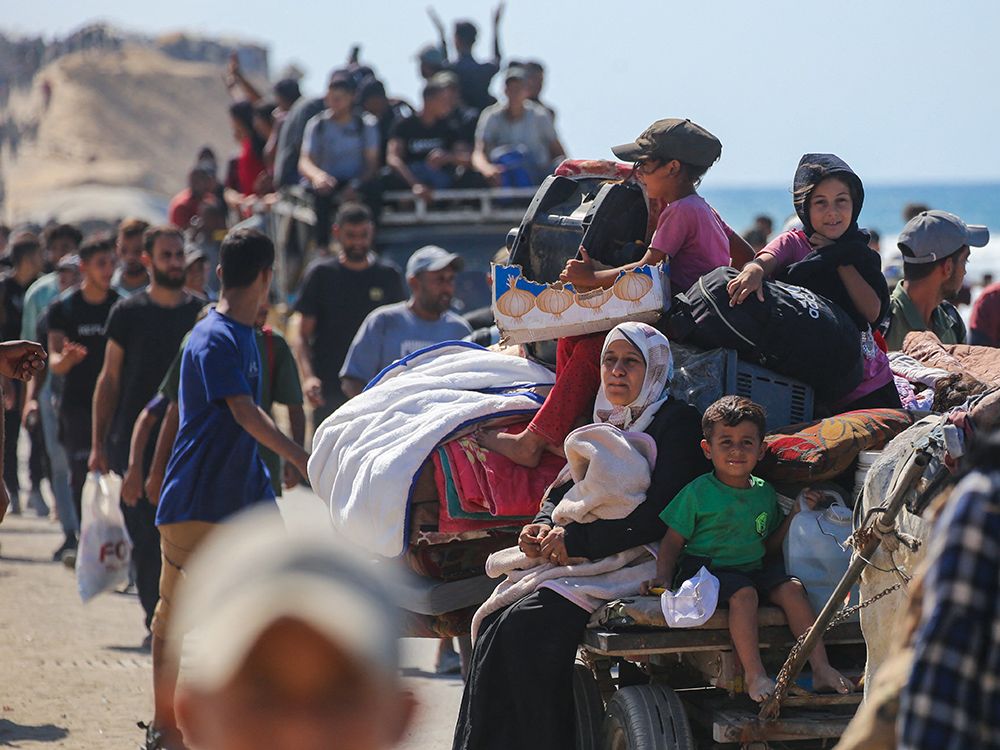
Judge delivers ruling in Federal Court regarding Gaza visa processing challenges
In a recent development impacting immigration processes, Palestinians in Gaza City and the Gaza Strip have lost their legal battle to compel the Canadian government to expedite their crisis visa applications. The Federal Court's decision, delivered by Justice Henry S. Brown, acknowledged the dire circumstances of applicants living in war-torn conditions. However, it ruled that Immigration, Refugees, and Citizenship Canada (IRCC) cannot proceed without biometric data, which has become unattainable due to the closure of the Rafah border crossing. This ruling highlights the complexities and challenges within Canada's immigration policies during global crises. Understanding Canada's immigration policies is crucial for those navigating similar situations.
"This ruling highlights the importance of understanding the nuances and requirements of Canada's immigration system, especially in crisis situations."
Legal Perspective: The legal decision emphasizes the need for biometrics in visa processing, a critical step often overlooked in emergency policies.
Key Takeaways
Federal Court denies Gaza residents' lawsuit for expedited visa processing.
Closure of Rafah border crossing halts biometric data collection.
IRCC unable to process visas without required biometric information.
What This Means for Ontario Residents
The court's decision underscores the importance of biometric data in Canadian visa processing, even in crisis situations. For Ontario residents with family in Gaza, this ruling may delay reunification efforts, especially for those relying on Canada's crisis immigration policy. The policy, intended to fast-track visas for Palestinians with Canadian relatives, remains hindered by the closure of critical infrastructure needed for biometric processing. This situation highlights the necessity of staying informed about immigration policy changes and potential delays, especially for those sponsoring family members from high-conflict areas. Explore more on how these policies affect immigration applications.
What You Should Do
Review how the change affects your current application Urgent
Determine if immediate action is needed
Gather all required documentation Urgent
Ensure all paperwork is complete and accurate
Check application deadlines and transition periods Urgent
Some changes have grace periods for pending cases
Verify your eligibility under new rules
Ensure you still qualify under updated criteria
Consider consulting an immigration lawyer
Professional guidance can help navigate complex requirements
Your Rights and Options
For Ontario residents sponsoring relatives from Gaza, understanding your legal rights and options is essential. While the court cannot compel the government to expedite processing, applicants should stay updated on policy changes and maintain communication with IRCC. If you're facing similar delays, consulting with an immigration lawyer can provide clarity on your situation and potential solutions.
Common Questions Answered
How UL Lawyers Can Help
We understand the stress and uncertainty that comes with navigating Canada's complex immigration system, especially in times of crisis. At UL Lawyers, we're here to provide compassionate guidance and support, helping you make sense of the legal landscape and explore your options. Our team is dedicated to assisting you in reuniting with your loved ones. Reach out for a free consultation, and let us help you find a path forward.
Facing challenges with immigration processes? Our team can help you navigate the complexities and explore your options.
Important Legal Disclaimer
This article is for informational purposes only and does not constitute legal advice. Immigration policies are complex and subject to change; always consult with a legal professional for advice specific to your situation.
Source: National Post - Canada